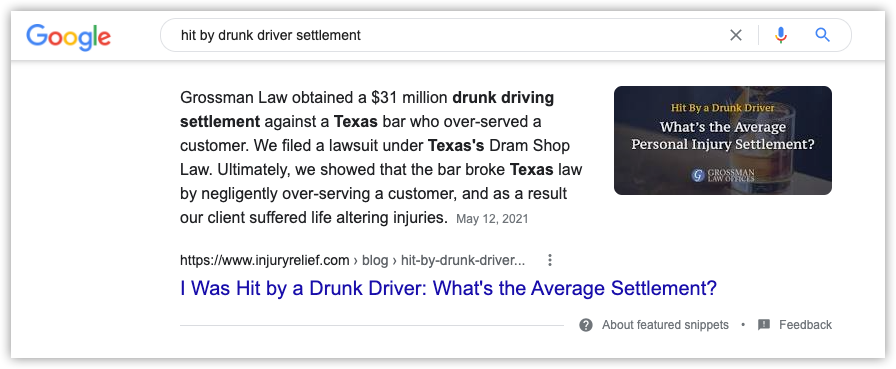We know that Google almost always shows heavily localized search results for commercial-intent lawyer keywords (eg. “car accident lawyer” and “divorce attorney”).
What’s less well understood is how Google treats informational legal keywords for which there is no clear local-intent (eg. “i got rear ended how much money will i get” and “can llc members sue each other”).
Why does this matter?
Most lawyers are licensed to practice only in certain states (the majority of our clients only take cases in a single state). Accordingly, one might assume that only keywords with clear local intent are worth targeting.
However, if Google frequently shows localized search results for informational keywords that don’t have clear local-intent, a much stronger argument can be made for investing in informational legal content, because even in the face of strong national competition, law firms can rank highly and get traffic from people searching from their state.
Mini Study Results
I searched 50 informational legal keywords from various locations to try to gain an understanding of how often Google shows localized results for non-local informational keywords. For each search, I examined the first page of results to identify pages that were ranking (in full or in part) because they were localized to my search location. Here are the results:
- Across 50 informational keyword searches, Google showed localized search results 81.25% of the time.
- The average number of localized results ranking on the first page was 2.5, with the highest total being 5 localized results on the first page.
Now, this study was very low tech and very mini. There is massive room for expanding this study with more keywords from different areas of law, searching from different cities, etc. But I think the overarching conclusion would remain the same: Google wants to – and indeed does – show localized content for informational legal keywords, even when there is no clear local intent.
Interesting Examples
Example 1: [car accident injury settlement amounts]
Check out the results for the informational keyword [car accident injury settlement amounts]. According to Ahrefs, this specific query gets around 350 searches per month in the US, with an average CPC of $18. I would deem it a valuable keyword for personal injury law firms, because it’s highly likely that folks searching this are in a situation where they could use a lawyer.
When I set my search location to “United States”, the number 1 result is millerandzois.com, a personal injury law firm in Baltimore:
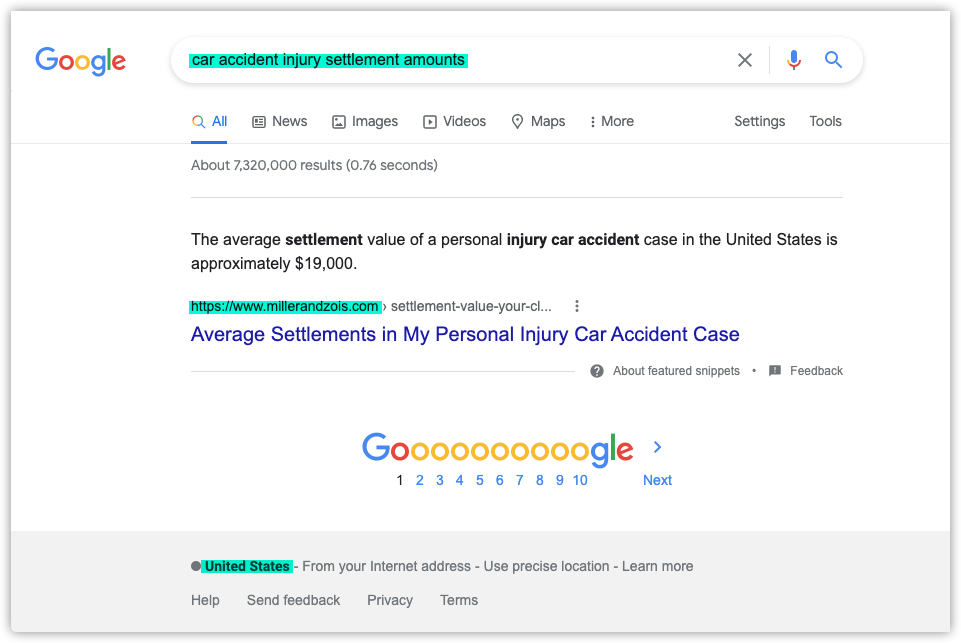
What this tells me is that millerandzois.com likely ranks well for this keyword regardless of the location of the searcher. It’s a well optimized post on an authoritative site, and so it ranks well for this competitive keyword, nationwide.
But look what happens when I search from Chicago:

Rosenfeldinjurylawyers.com – a personal injury law firm in Chicago – goes from not ranking at all to the #1 organic position, and a featured snippet to boot. Meanwhile, millerandzois.com drops all the way down to the #5 organic position.
Example 2: [can llc members sue each other]
This keyword gets around 150 searches a month according to Ahrefs. When I search from Miami, upcounsel.com has the #1 spot. UpCounsel is a national service, not a local law firm:
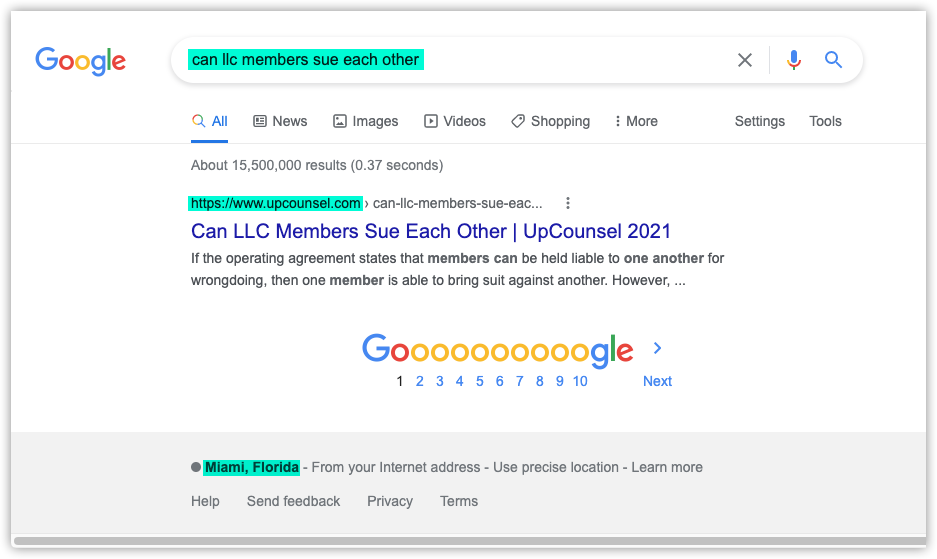
However, when I search from Dallas, a law firm that is local to Dallas (and is a Juris Digital client) snags the #1 spot:
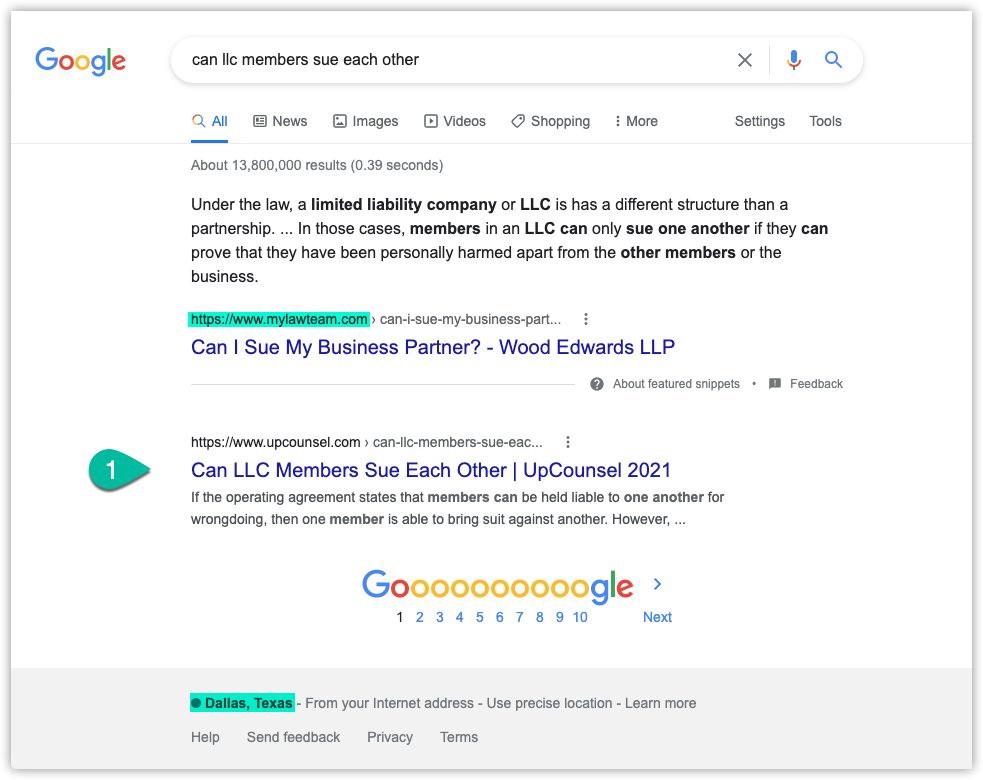
Example 3: [rear end collision settlement]
Ahrefs says that [rear end collision settlement] gets around 150 searches per month with CPC of $9. When I search from Houston, 4 of the first page of results are law firms in Texas:
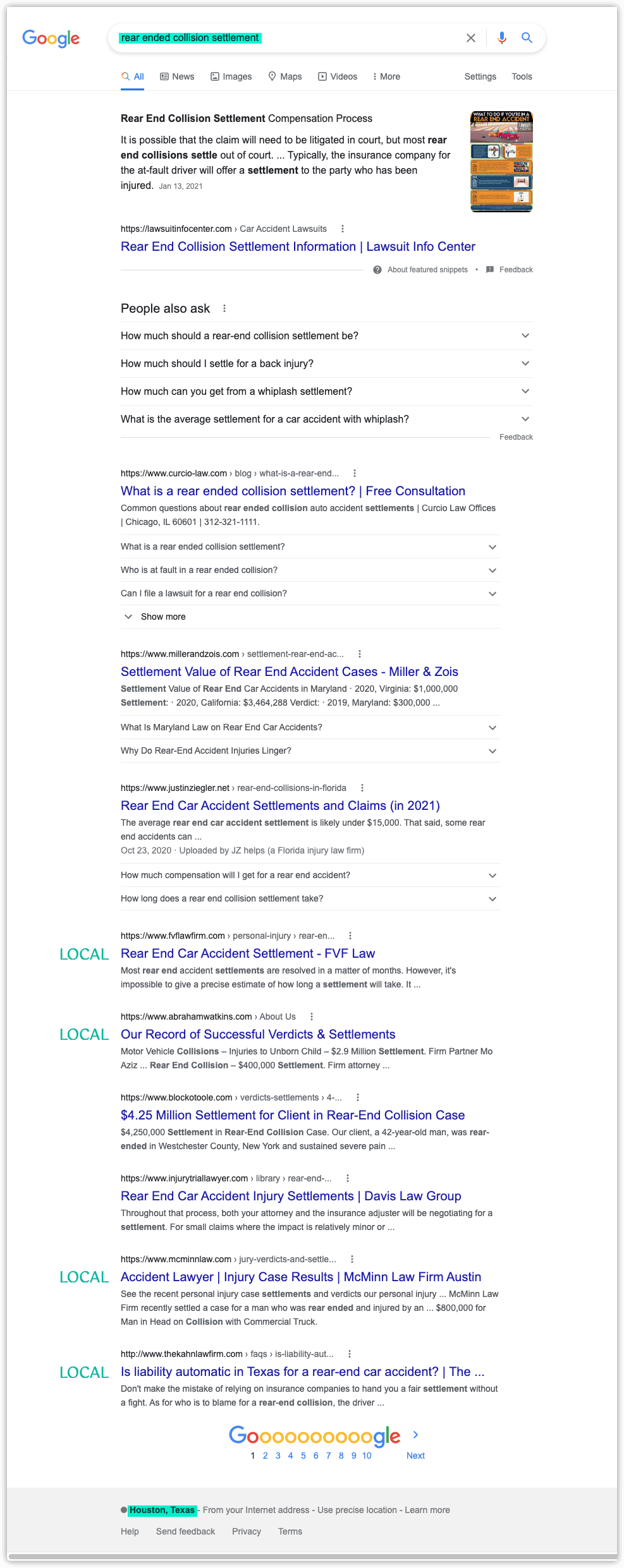
When I do the same search from Chicago, NONE of those same firms rank on page 1. They are replaced with local firms, and a local firm takes over the #1 spot:
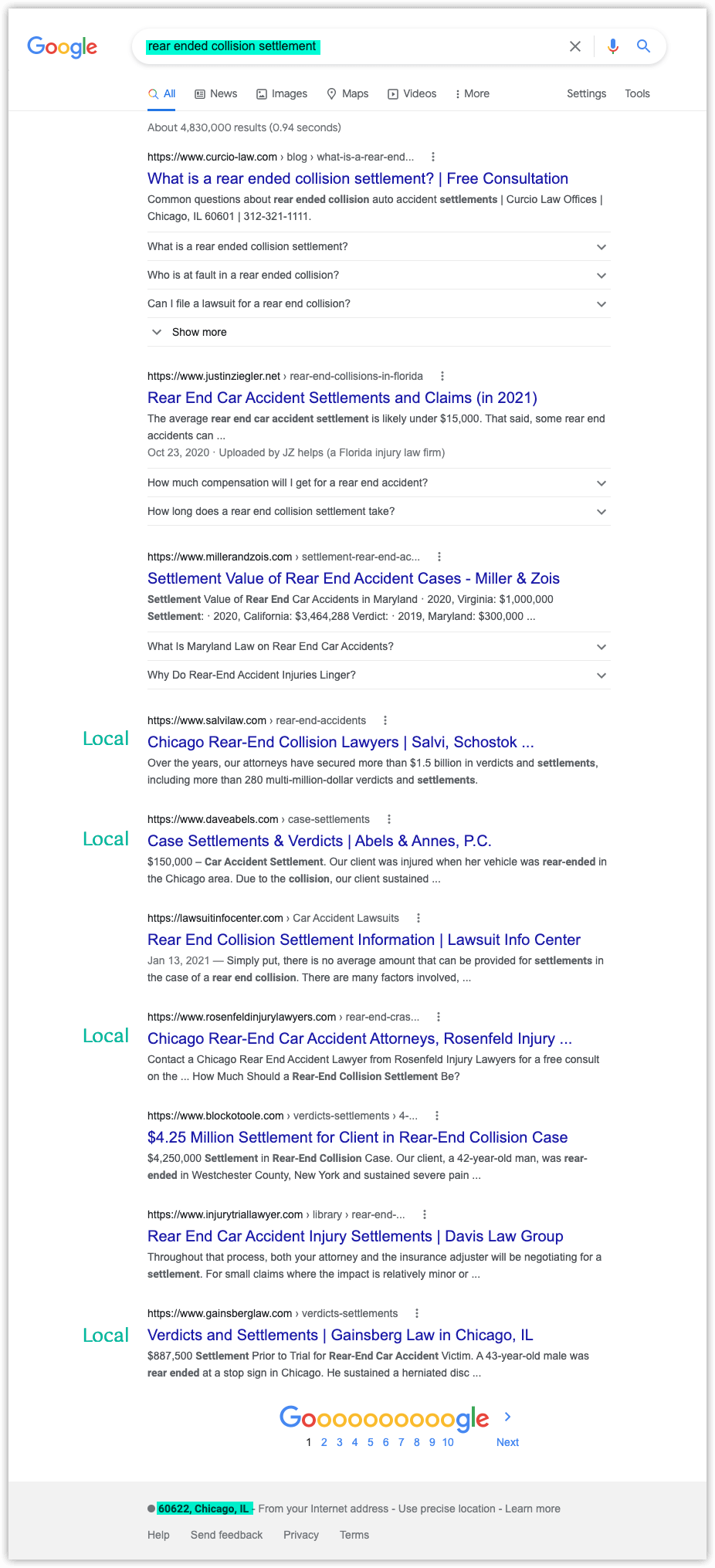
What to Do With This Information
Here’s what we are advising our clients to do / think about based on this information:
Invest in content marketing which targets informational legal keywords, even when there is no clear local intent.
The two most common objections to this are:
- Since they are “nationwide” these keywords are too competitive, so why waste our time?
- Since the majority of searches will come from outside of our state, we’ll get too many leads we can’t take.
But these objections are nullified by the fact that Google so often shows local results for these keywords. If done properly, you can rank only in your state for these keywords and thus get traffic only from folks you can help.
Localize your informational content at the state-level
The temptation with writing informational topics is to keep them un-localized. For example, if you want to rank for [personal injury lawsuit] you may naturally write your content in a way that will be relevant / useful for folks no matter where they are located. In reality, you should be writing about [personal injury lawsuit in illinois] (or whatever your state is) because that will allow you to rank in those localized search results, and avoid getting traffic / leads from people you can’t help.
Some ways to localize your content:
- Add state name in Title, H1, Headings, Meta Description, Image Meta, and Body Content
- Test adding a Google maps embed of your location
- Test linking to other local websites / resources from your content
- Testing adding LegalService Schema to the page
Search your keywords from your location before content creation to see whether Google shows localized results
If Google is already showing localized results for a given informational keyword that you’re considering creating content for, then it’s a no brainer that you should be going after that keyword, and that you should be localizing the content.
But even it it’s not, that doesn’t mean you shouldn’t pursue that keyword. It may simply mean that Google doesn’t have enough quality localized content on that topic, and you could have an opportunity to force Google to show localized results for a query that it currently doesn’t.
Track your informational keyword rankings from a location in your state
Since Google so frequently shows localized results for informational keywords, it’s essential that you set your location to your state when tracking your rankings for these keywords. If you are in Houston Texas you need to be tracking rankings based in Texas. Otherwise you may be misinformed about the actual performance of your informational content.
You’re all the way at the bottom! Thanks for reading. If you have thoughts or questions on this topic, I hope you’ll drop a comment below. I will personally respond ASAP!

